- Home
- Kristi Belcamino
Gia in the City of the Dead Page 6
Gia in the City of the Dead Read online
Page 6
If she followed my plan exactly, no one would be any wiser. And nobody would get hurt. She’d stay in the Cannes apartment I’d rented for the next year and then, if she wanted, she could fly back into America with the one-way ticket I’d bought her under her real name.
I’d spent last night at Kato’s transferring important documents and information from my old laptop to one I’d paid cash for at a store on Market Street. I’d then put some vague, obscure posts on social media about craving warmth and sunshine and being sick of San Francisco’s perpetually gloomy skies.
I should be the one using that passport and hiding out. At first, I’d considered fleeing to the south of France myself, but then I realized that is what would be expected of me. Staying in the city and living in the ghetto was the least likely place for me to hide. That’s what I was counting on. Hiding in plain sight. And it would allow me to investigate who was trying to off me. Was it really Vito?
I paced a bit on the rooftop, keeping an eye on the wide curving driveway of my building — or rather my old building — until my godfather’s men showed up. The black Lincoln Continental was not subtle. It squealed to a halt in the driveway. The goons didn’t bother closing the car doors after they leaped out. The doorman rushed out of his office, hands up, mouth working. He ducked and I felt a little bad when the muscle slapped him on the side of his head, sending his coiffed hair askew. Not cool. But the doorman was obviously in on it. He’d let the goons up to my apartment the other night and now called my godfather’s men to report “me” leaving. I wondered how long my godfather had been spying on me and how long the doorman had been at his service. Fuck me. I had to be smarter.
The 70s-dude paced the driveway, phone to his ear. His scowl was visible from fourteen stories up. I’m sure my godfather was chewing him a new asshole. Training the binoculars up to my sixteenth-floor balcony, I could see the muscle tearing apart my apartment, throwing cushions across the room. Satisfied, I put the binoculars away.
CHAPTER THIRTEEN
I STEPPED OFF THE BUS into the long shadows of the Tenderloin—the T.L.—as the sun set. Tourists staying at hotels near the Curran Theatre took cabs the three blocks to the theater to avoid stepping their dainty feet on these soiled city streets. They pulled their fur coats closer and darted glances at me and the other misfits roaming the area. I didn’t blame them. It was good people watching in the T.L.
In the space of five blocks, I strolled past a dude dropping his drawers and crapping in the middle of the sidewalk, a pair of junkies passing a crack pipe back and forth, and a hooker in a skimpy skirt hailing a Mercedes and leaning in his window so far that her sex was showing.
I wasn’t sure, but it seemed like a guy in a stocking cap might have been following me since I got off the bus so I backtracked to the Market Street bus stop and spent some extra time going up and down the escalators at Marshalls until I was sure I ditched him before I ducked into the Fancy Gurlz hair salon. Women with elaborate braids sat beneath pastel cone hairdryers. The salon reeked of hair straightener and cheap perfume and the ladies cackled at my appearance.
“You hanging with the sisters tonight?”
“What you want with your shiny brown hair?”
“You know the joint is slipping when they start letting white girls come in get their hair did.”
I ignored them and kept walking toward the back. They hooted and hollered until Darling, the owner, whose gloved hands were buried in a woman’s hair, spoke up. “Hush, now. Baby girl’s a friend of mine.”
I leaned over and gave Darling a kiss on her cheek and she jutted her chin back toward her office.
Darling and I had history. We met during a protest a few years back. A cop had killed a young black man who’d done nothing more than been in the wrong place at the wrong time when the trigger-happy rookie got scared and bam-o, dead kid.
Darling and I ended up in the back office of her shop after the protest, drinking bourbon and playing cribbage and trying to peacefully reform society. Soon, I learned that the salon was her love, her passion, but also a front. Her real money—the money that let her have a house on Russian Hill and in the Oakland Hills—was paperwork, the expensive and hard to get kind, such as fake IDs and passports.
Even without that, the salon was the epicenter of a vast social network I knew nothing about. Darling once told me that when World War III hit, the black people’s hair salons would still be standing, doing fierce business. I believed her.
Today I looked homeless, lugging my giant camping backpack as I walked all the way through the salon to the office door. Inside the top drawer of her desk, there was an envelope marked “G” that contained the other fake IDs I’d asked for and a stash of burner cell phones. I left an envelope with two grand to pay for my and Candy’s fake passports, ID’s, the expense of having Candy’s documents couriered to her, and of course for Darling’s trouble. Tucking the envelope into my jacket pocket, I went out another door. This one led down a flight of stairs, across a hallway, through another door, and up another set of stairs that led to a back door to the alley. Out in the fresh air I got my bearings and hurried to the next block. Off the main drag, I turned into another long alley and from there onto a small, quiet street. I checked the address on the slip Kato had given me. Yep. There it was. 345 Turk Street, across from the Tenderloin hood known as Forgotten Island. I’d read about it in the paper a few years ago. Forgotten Island. That’s what I wanted to be — forgotten, disappeared, invisible. That was a great reason to make this tiny strip of the T.L.— my new home.
A woman with ratty hair pulled back in a silky, stained scarf and a face caked with dirt and sweat scrambled up from the sidewalk in front of the building when I got to the stoop. She smiled, showing a few missing teeth.
“Spare some change?”
I stopped, my hand on the door. “You live here?”
Looking around at the empty sidewalk, she shrugged.
“What’s your name?”
“My name?” For a minute her eyebrows met in the middle as she scrunched up her face. I got the feeling nobody had asked her that for a long time. “I’m Ethel. Ethel Swanson.” Her shoulders seemed to draw back a little in pride when she said this.
“Well, Ethel. I’m Gia. Nice to meet you.” I gave her a quick salute and opened the door to go in. Ethel scowled and sank back down onto the stack of cardboard on the sidewalk.
INSIDE THE BUILDING the bulb was burned out, but I was able to make my way by the dim streetlight shining through the glass front door. Something scuttled across the floor, but it was too dark to tell if it was a cockroach or a rat.
I pounded on the door to apartment A for about ten minutes.
“Who there?”
“I’m looking for Trang. Name’s Gia.”
The door creaked open a few inches and one squinting bloodshot eye peeked out. Strands of black hair stuck up in every direction.
“Okay, okay.”
Trang undid the chain and gestured for me to enter, but I had no intention of leaving the hallway.
“You got the money?”
I handed him another envelope with three thousand dollars in it. He counted it carefully.
“What’s up with the dark?”
He squinted up at the ceiling as if he had just noticed. “Damn. Burned out. I fix.”
I gave him a skeptical look. What kind of dump was I moving into?
He started to close the door. “Okay, come back in one hour.”
“What the fuck are you talking about?”
“I don’t have the key here. I gotta go get it.” He pulled on an Army green coat and locked his door behind him. “Meet me back here in an hour.”
“What?” he asked when I didn’t answer. “You want receipt?”
I turned to walk away. The piece of paper would’ve been useless.
Outside the building, that same woman, Ethel, sat huddled on the ground. She started to get up, saw it was me again, and slumped back down.
&nbs
p; “Hey Ethel, why so glum?” I pulled a silver flask out of my bag. It was engraved with my initials G.V.S.—for Giada Valentina Santella. I took a slug and handed it to her.
She grasped it eagerly with dirty fingernails and tipped it back, gulping, her eyes on mine. I nodded and she kept going, finally coming up for air. She got up to hand it to me, but I waved her off.
“All yours.” The flask had been a twenty-first birthday present from my godfather and I’d gotten a good two years use out of it, but I wouldn’t need it anymore. Before I got up to hunt down more booze, I tucked a twenty into the pocket of her jacket and told her to go buy herself dinner.
CHAPTER FOURTEEN
I SPENT AN HOUR DRINKING tequila at the closest bar, which was actually only a block away from my new home. I’d heard the Beastie Boys coming out of the juke box when I walked in and figured it was a cool place to hang out for a while.
The crowd at Club Katrina looked okay — pretty typical San Francisco dive bar crowd — a transvestite or two, a grizzly old guy, and a couple of working ladies. Nobody who seemed dangerous. Two rowdy yuppie-looking guys came in right behind me, obviously slumming because they were talking loudly about the show they were about to attend at the Great American Music Hall a few blocks away.
I ordered another Patron tequila from the surprisingly beautiful Asian bartender, who could have obviously found a gig at a better place. I slumped into a sticky booth and sat idly watching the ten o’clock news on the TV hanging above the bar. The lead story was about the opening of the new span of the Bay Bridge. Boring.
I grabbed the Chronicle off a nearby table and settled in to read.
Two articles in the local section nearly made me fall off my bar stool.
The first was a picture of the girl I’d seen with Christopher. The article said she was missing and her parents were frantic. My heart pounded in my ears. Holy fuck. Had my brother been killing girls? Is that why Vito was so serious about stopping him. Had Vito killed him to stop him from killing others? That made sense. But then why would Vito want me dead? Because I knew?
It hurt too much to think about. I had loved Vito. But my love was growing into hatred.
Christopher had probably killed that girl. And maybe, although it was hard to believe, Vito had killed him and tried to kill me.
Staring at the girl’s face, I felt a wave of horror.
I had failed. It was my job to protect her. I knew that night I saw her with Christopher that she was in danger. I ignored my Budo training and walked away. I had thrown her to the wolves, or the biggest, baddest wolf: my brother.
I rushed to the bathroom and had barely made it to the toilet when I vomited. I could have saved that girl. I could have taken her aside and done ... something. Lied or something. Anything to get her away from my brother. And what the fuck? Did Bobby know this? I let that guy in my apartment and in my bed. What if they were in on it together? But I knew that was nonsense. Bobby must not know.
Finally, when there was no more tequila in me, I splashed my face and fixed my hair and went back to the bar to order another.
The ethereally beautiful bartender gave me a skeptical look when I ordered another drink. The newspaper was still on the bar, open to the girl’s picture.
I stared at it.
I flipped the page so I didn’t have to see her anymore. Her blood was practically on my own hands.
I read about a new organics recycling program and a new book out about the Mission. Then, a small item caught my eye. A doorman for a luxurious apartment building, named Andrew Fairfield, had been killed in a car crash. As I read, my blood raced, Fairfield had decided to go joyriding in a tenant’s red Ferrari. He’d taken the car across the Golden Gate Bridge and just reached the Marin Headlands and was navigating a tricky curve when the car went plunging off the road and hurtling down a cliff. He died on impact. Police were investigating, but said it appeared that the brake line had been cut.
Andrew Fairfield. My doorman. Red Ferrari. My car.
Whoever wanted me dead wasn’t taking any chances. They were serious about taking me out. Vito was ruthless. I knew this. But what had I done? It didn’t make sense.
I paid my bill and headed back to my new home, looking behind me at every tiny noise. Back at 345 Turk Street, the lightbulb in the lobby was fixed. The place didn’t look all that bad. Trang was waiting. He handed me the key and pointed up. “One at the top.”
I made my way up the stairs until they ended at a small hallway where there was a reinforced steel door with a peephole. My key fit.
Kato had told me the apartment had been remodeled as a safe house for some political friend of his from Sudan. I didn’t ask for more information and he didn’t volunteer any.
I pushed open the door and hit the light switch. The apartment was about 800-square-feet of wooden-floored, wide-open space. The southwest corner had a single bed under a window. Across from that, on the northwest wall, was a small galley kitchen and café table with two chairs near another window. I took my mother’s box and slid it on top of the highest cupboard in the small galley kitchen. A door opened to a small staircase leading to a door with a small sign that said “roof.”
As I took in the wide-open space I rejoiced. It would be perfect to practice my Budo because I intended to get in the best shape of my life.
I’d go cold turkey on the alcohol and weed. I’d detox. I needed all my wits about me. There was no room for vices. I would need to prepare both my mind and body for the days ahead. I needed to be sharp as hell if I was going to find out whether my godfather killed my mom and dad. And Christopher. And why he wanted me dead.
That first night in the big, empty apartment, I couldn’t sleep. I lay in the tiny hard twin bed staring at the ceiling for what seemed like hours, watching the lights flicker across my ceiling as cars drove by. Finally, I went up on the roof and paced, looking at the city around me, wishing I had a cigarette.
Finally, around dawn, I fell asleep.
Day blended into day and slowly the cravings for nicotine, booze, and weed went away. It helped that I was focusing on Budo more than ever, spending a few hours a day training. When I wasn’t training, I was reading one of the books out of a giant stack that Kato and Susie had loaned me. Books on karate, but also ones by some of the San Francisco beat writers, such as Carolyn Cassady’s book about her love affairs with Neal Cassady and Jack Kerouac.
It’d only been a week and I already missed Kato and my dojo. But that is the first place my godfather would go looking if he suspected I was still in town. I knew even if my godfather tracked down Kato’s home address, none of his neighbors in the rough Mission District would talk to my godfather’s men. Even if a gun was held to their face.
On the seventh day, I started doing pushups in the mornings and ran laps on the roof at night. I was relieved that whoever designed this safe house made it so my apartment was the only one with roof access. I was antsy holed up in my place, so I spent a lot of time up there, peering over the five-foot high walls at the streets below. So far, I hadn’t seen anyone suspicious.
On the rare days when the sun graced the city, I brought an old blanket up to the roof to lie on and stripped naked, soaking up the warmth, pretending I was in the southern France penthouse where I’d sent Candy. I idly dreamed of one day growing tomatoes and basil on the roof so I could make fresh pasta sauce. Until then, I ate simply, eating a mixture of beans and brown rice or heating up some pasta and mixing it with butter and garlic salt, an old recipe my mother had showed me, saying she made it during the lean years of my childhood — before my dad’s seafood business hit gold.
It felt good to detox. I’d been overindulging in everything in my life — food, alcohol and sex — since my parents died.
Cutting all that out made me feel more like myself than I’d felt in years.
One day, I went down to ask Trang something, but he wasn’t home. My Vietnamese neighbors were quiet. The whole building smelled like their cooking, night and
day, and made my mouth water. They kept to themselves. And so did I.
But on this day, as I stood near the glass front door, I saw one of my neighbors for the first time. An older woman juggled several grocery bags as she fumbled for her keys, trying to get the door open. One bag broke and oranges started rolling down the steps. I opened the door and picked up her scattered groceries, giving a quick glance around. Nobody. Not even Ethel.
Inside the building, the old Vietnamese lady gave me a missing tooth grin and said something I didn’t understand. I followed her up the stairs to the second floor, holding her broken sack and four oranges close to my chest. She unlocked her door and turned to get her groceries from me, giving me a pat on the shoulder and another grin. She said something else in Vietnamese. I started to back away.
“Uh, okay. Yeah, you’re welcome.”
She just kept smiling and nodding as I headed up the stairs.
CHAPTER FIVETEEN
I WAS DOING MY BUDO the next morning when a knock at my door sent me scrambling for my gun. I raced to the side of the reinforced steel door, heart pounding, gun in hand, and yelled in what I hoped was a tough voice, “Who’s there?”
Nothing. I stepped over to the peephole.

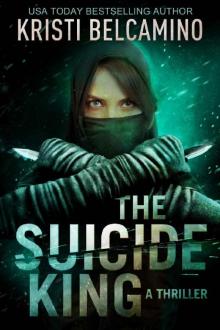 The Suicide King
The Suicide King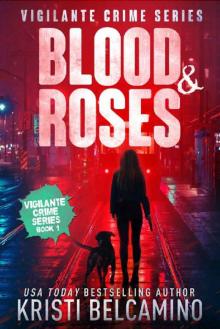 Blood & Roses (Vigilante Crime Series)
Blood & Roses (Vigilante Crime Series)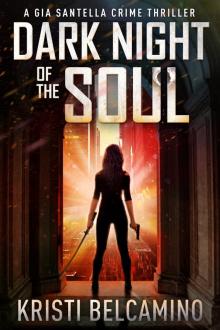 Dark Night of the Soul
Dark Night of the Soul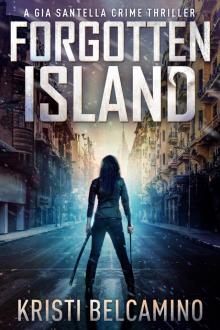 Forgotten Island
Forgotten Island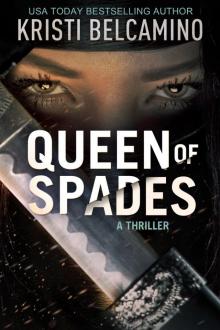 Queen of Spades
Queen of Spades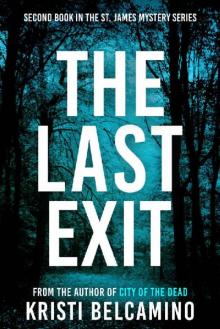 The Last Exit: A St. James Mystery (St. James Mysteries Book 2)
The Last Exit: A St. James Mystery (St. James Mysteries Book 2)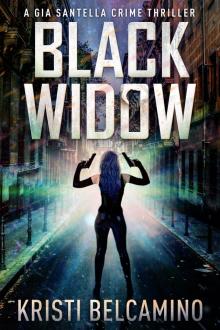 Black Widow
Black Widow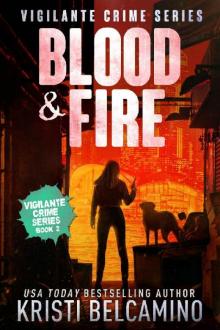 Blood & Fire (Vigilante Crime Series Book 2)
Blood & Fire (Vigilante Crime Series Book 2) End Game
End Game Buried Secrets
Buried Secrets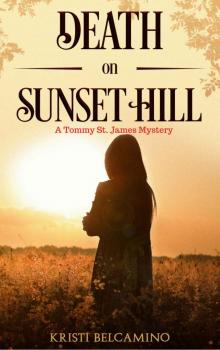 Death on Sunset Hill (A Tommy St. James Mystery Novella Book 2)
Death on Sunset Hill (A Tommy St. James Mystery Novella Book 2)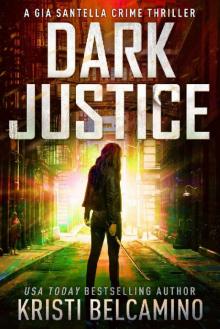 Dark Justice
Dark Justice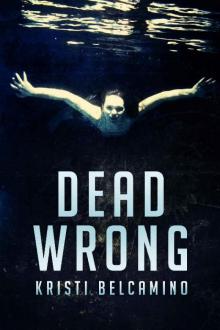 Dead Wrong
Dead Wrong No Way Out
No Way Out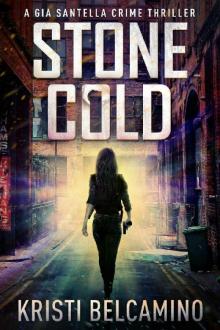 Stone Cold
Stone Cold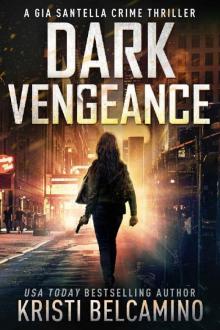 Dark Vengeance
Dark Vengeance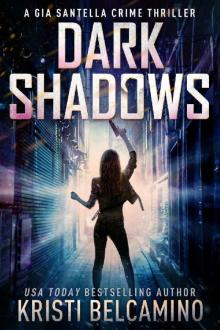 Dark Shadows (Gia Santella Crime Thrillers Book 11)
Dark Shadows (Gia Santella Crime Thrillers Book 11)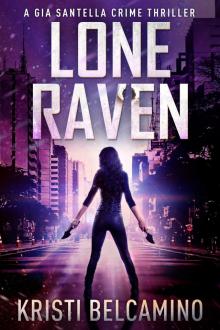 Lone Raven
Lone Raven![[Gia Santella 01.0] Gia in the City of the Dead Read online](http://i1.bookreadfree.com/i/03/16/gia_santella_01_0_gia_in_the_city_of_the_dead_preview.jpg) [Gia Santella 01.0] Gia in the City of the Dead
[Gia Santella 01.0] Gia in the City of the Dead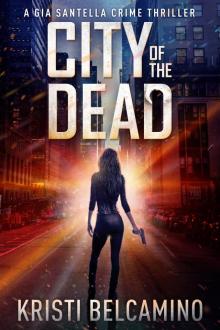 City of the Dead
City of the Dead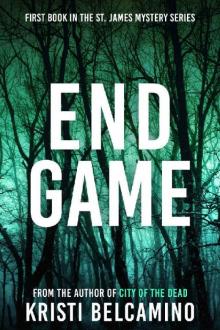 END GAME: A St. James Mystery (St. James Mysteries Book 1)
END GAME: A St. James Mystery (St. James Mysteries Book 1)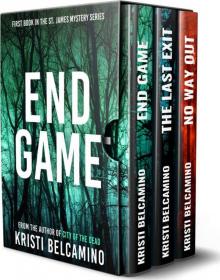 Tommy St James Mysteries Boxed Set
Tommy St James Mysteries Boxed Set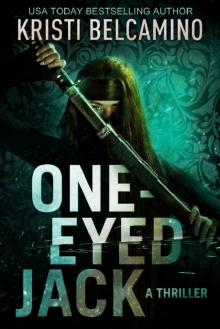 One-Eyed Jack
One-Eyed Jack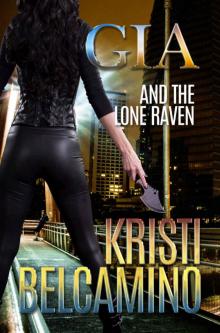 Gia and the Lone Raven
Gia and the Lone Raven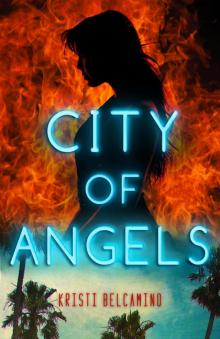 City of Angels
City of Angels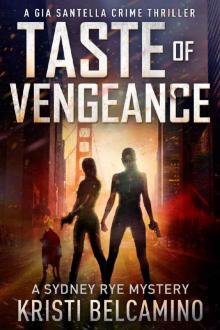 Taste of Vengeance
Taste of Vengeance Gia Santella Crime Thriller Boxed Set: Books 1-3 (Gia Santella Crime Thrillers)
Gia Santella Crime Thriller Boxed Set: Books 1-3 (Gia Santella Crime Thrillers)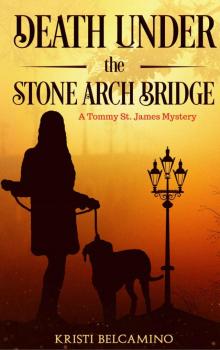 Death under the Stone Arch Bridge
Death under the Stone Arch Bridge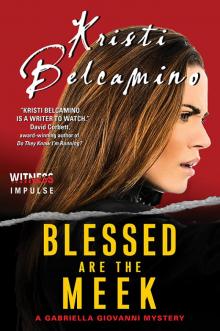 Blessed are the Meek
Blessed are the Meek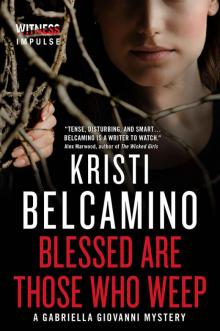 Blessed Are Those Who Weep
Blessed Are Those Who Weep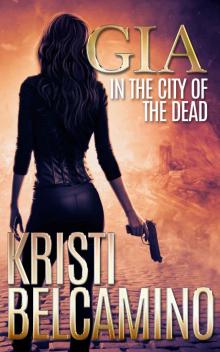 Gia in the City of the Dead
Gia in the City of the Dead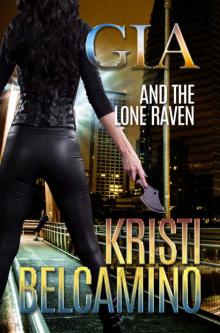 Gia and the Lone Raven (Gia Santella Crime Thriller - Novella Book 4)
Gia and the Lone Raven (Gia Santella Crime Thriller - Novella Book 4)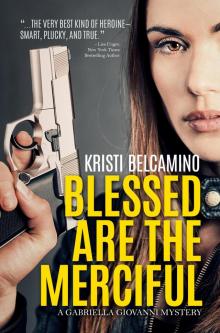 Blessed are the Merciful
Blessed are the Merciful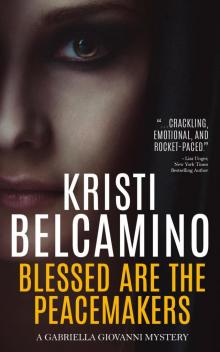 Blessed are the Peacemakers
Blessed are the Peacemakers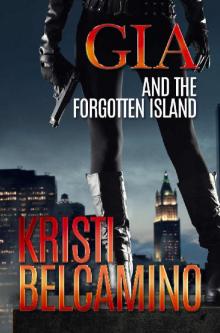 Gia and the Forgotten Island (Gia Santella Crime Thriller Book 2)
Gia and the Forgotten Island (Gia Santella Crime Thriller Book 2)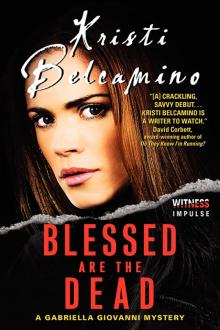 Blessed are the Dead
Blessed are the Dead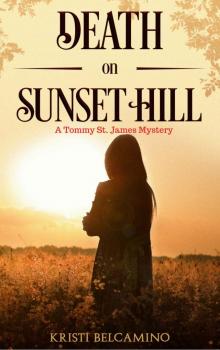 Death on Sunset Hill
Death on Sunset Hill